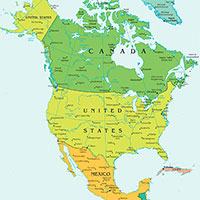Climate Change at Home and Abroad
Malcolm J | December 3, 2014.
The United States’ recent agreement with China over carbon emissions was substantial in kick-starting negotiations. However, the Obama administration still faces many challenges on the domestic front to legitimise their commitments.
With one of the largest delegations at COP20, the United States continues to be a power player when it comes to the negotiations, for better or worse. Halfway through the first week of the latest round of the UN climate change negotiations, and eyes continue to be on the US to see what topics will define their platform at the conference.
For Obama, climate change is now a legacy issue, and has increasingly become a personal crusade. Environmentalists continue to herald his actions, despite many of the challenges he has faced in accomplishing his goals. The commitments struck with China last month are no exception, providing momentum and changing the narrative going into COP20. For the White House, it is a breakthrough, one that has been well timed to give negotiations a kick-start.
The agreement with China also silences the criticism that any emissions reduction commitment is worthless if China isn’t also contributing to cuts. The Obama administration established their commitment to address climate change to the international community regardless of the state of affairs in the US.
Climate action begins at home
This matters because the domestic front is where Obama will face the toughest negotiations. Last month, the Republicans swept to power in Congress and worked diligently to offset any climate gains made with the recent China deal. Their criticism and threats may prevent any further action by Obama on climate change.
The situation is made worse by the continuing headache of the Keystone XL pipeline which has become symbolic of the battle between economic growth and environmental protection. The shale oil and gas revolution, which has renewed America’s economy and energy security, plus the subdued price of coal and oil, has obstructed the momentum of environmental campaigns.
Keystone XL is in its sixth year of delay, and new Republican Leader of the Senate Mitch McConnell has said this is a priority for Congress. One of the last votes of the Democrat-held Senate last month rejected legislation aimed at forcing completion of the Keystone XL Pipeline. Additionally, it is likely that Obama will veto any bill on the measure. But McConnell has other targets in his sights, having already said he wants to reign in the Environmental Protection Agency (EPA). This would lead to a defunding of Obama’s primary tool for implementing his environmental legacy.
As a result, Obama is being squeezed by the competing concerns of economic growth and his increasingly personalised environmental agenda. This is an uncomfortable position from which to pursue ambitious environmental outcomes, and a worse position from which to convey confidence to other countries. America’s refusal to ratify Kyoto still haunts the minds of the world’s climate negotiators.
The US would have even less flexibility on international climate finance commitments, as Congress will have the ultimate authority over such expenditure. Obama’s recent promise of US$3 billion to the Green Climate Fund is unlikely to eventuate, with Congress needed to authorise such measures. Past experiences raise further doubts; the US pledge of $2.6 billion to the Climate Investment Funds in 2008 is being delivered with a slow drip, and current contributions are still over a $1 billion short.
There are, however, some causes for optimism. Many states, even ones dominated by Republicans, are pursuing their own climate policies. Ten have emissions trading schemes, some with international linkages; and thirty have renewable energy targets. Local governments have also adopted their own climate action plans that establish tangible goals and encourage national implementation.
The boom in shale gas may make dirtier fuels uncompetitive; shale technologies, however, may also divide environmental campaigners. Coinciding with the introduction of the EPA’s new regulations set to begin in 2015, eight per cent of coal-fired power plants in the USA are set for retirement next year and 16 per cent are likely to follow join them. Indeed many coal power plants built in the 1950s and early 1960s are slated for retirement before 2020.
What will this mean for the negotiations?
Forget a completely legally binding treaty. There is little to no chance the US Senate would ratify such an outcome. The US also will never allow a bifurcated agreement, like Kyoto, that divides developed and developing nations.
But there’s hope. Obama’s personal interest and already strong commitments to emission reductions could spur further ambition on mitigation targets, and provide a crucial driver through to Paris in 2015.
Look out for a hybrid approach, one that promotes countries in determining and pledging their emission cuts and requiring regular reporting. Climate finance may be awkward, as could adaptation, though an ambitious negotiating strategy and brave, some might say naïve, political mandates could potentially risk getting on board in these areas in exchange for desired outcomes on the form of the agreement, developing country buy-in and ambitious mitigation targets.
At the very least, the US will want to see decisions on the text around Intended Nationally Determined Contributions (INDCs) in order to smooth the path towards COP21. Expect the US to push, and maybe initiate, clarification on INDCs information requirements. This will provide confidence and goodwill that was lacking in Copenhagen, and provide breathing space leading to Paris.













comment